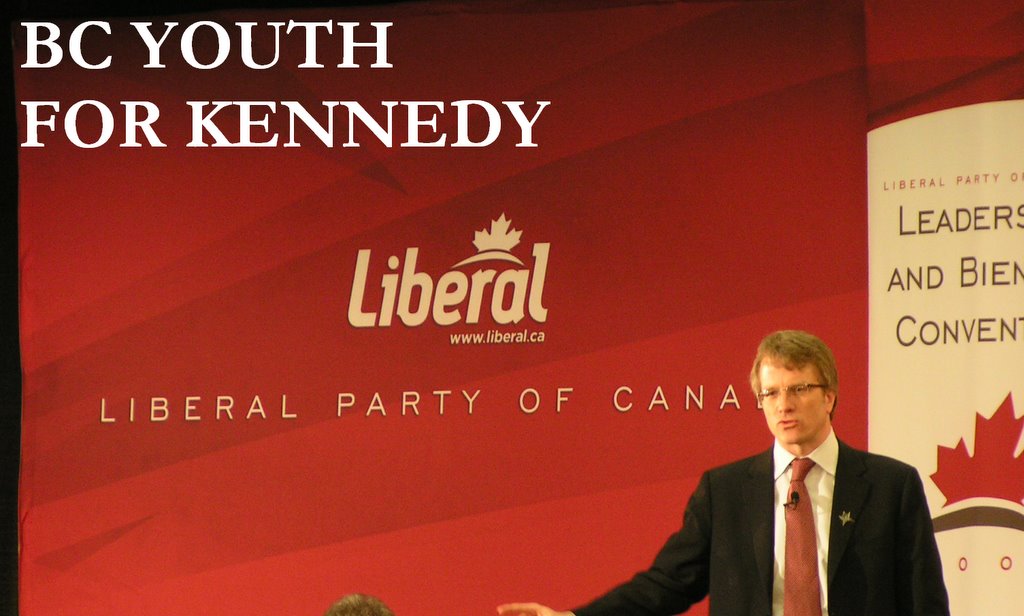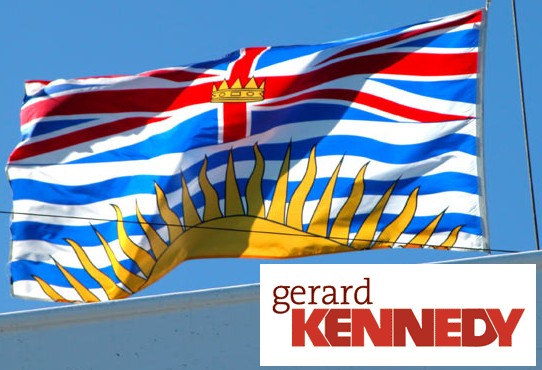Cheaper Hybrids, Better Air - A Step Towards Sustainability
Gerard Delivers on a Major LPCBC Policy Convention Theme
Kennedy proposes tax on gas guzzlers
Jun. 15, 2006. 04:57 PM
CANADIAN PRESS
OTTAWA — Canada should impose a tax on gas-guzzling SUVs and cut the GST on hybrid vehicles to help meet its Kyoto commitments, says Liberal leadership candidate Gerard Kennedy.
Kennedy said Thursday that those two measures would yield a "much more practical" reduction in greenhouse gas emissions than the carbon tax floated by leadership frontrunner Michael Ignatieff.
Kennedy, a Manitoba-born former Ontario education minister, claimed he brings a "western sensibility" to the leadership race. He said a carbon tax would unfairly penalize oil-rich Alberta, incense the energy industry and be counterproductive.
"We need the oil sector on side. Eight per cent of our increase in greenhouse gases came from the oil sands," Kennedy told The Canadian Press.
"We need to be working with them and what we don't want to do is cause a huge flight of capital and damage our resource industry that has been part of Canada's economic power."
Kennedy added that "Western Canada has to stop being the afterthought" when it comes to Liberal policy.
"If you're building policies you should ask yourself how they wear in all parts of the country, which is something that the Liberal party has to get better at."
Kennedy reiterated that he's open to running in a western riding for a seat in Parliament. He said there's actually "a small bidding war" among Liberals urging him to run in various places, including Lethbridge, Alta.
Ignatieff has been criticized by some rival candidates as well as Prime Minister Stephen Harper for raising the idea of a carbon tax at the first all-candidates' debate last weekend.
Ignatieff, a rookie Toronto MP and acclaimed scholar, is widely considered the early frontrunner in the race to succeed former prime minister Paul Martin. His 10 rivals have begun sharpening their attacks on him.
Still, Kennedy said it's too early in the race, which culminates at a Dec. 3 convention in Montreal, to predict who's going to win. His own experience suggests that frontrunner status can actually be a liability.
"Having done frontrunner before, should Mr. Ignatieff wish to claim it, he's welcome to have that. I'm here to officially cede the position," he joked.
Kennedy was the frontrunner in the 1996 Ontario Liberal leadership. But he eventually lost to Dalton McGuinty, who came from well behind on the first ballot to win on the fifth.
Kennedy also had some harsh words for Conservative Prime Minister Stephen Harper, whom he accused of pitting province against province with his reckless promise to remedy the so-called fiscal imbalance.
Premiers are bitterly divided over how to redress the problem, particularly when it comes to proposals to boost equalization payments to poor provinces.
"The worst things that will happen in a country, it would be like a family, is a fight about money," Kennedy said.
"I think this is quite hazardous stuff. You do not want people in one part of the country having envy for people elsewhere."
Kennedy questioned whether there really is an imbalance, wherein the federal government has more money than it needs while the provinces struggle to pay for costly health care, education and other social services.
He allowed that the federal government is awash in huge surpluses. But until Ottawa invests in programs needed to ensure Canada can compete globally against economic superpowers like India, China and Brazil, Kennedy said it would be foolhardy to transfer a big chunk of those surpluses in perpetuity to the provinces.
Moreover, he said Harper has already eaten up so much of the surplus with tax cuts that he won't be able to deliver on his fiscal imbalance promise. Harper could thus wind up "disappointing Quebecers," who are most adamant about resolving the issue, and potentially reigniting separatist sentiment.
"Nobody I think believes we're on sanguine terms in terms of a reckoning with Quebec's place in Confederation. All the more reason not to politicize (this issue)."







<< Home